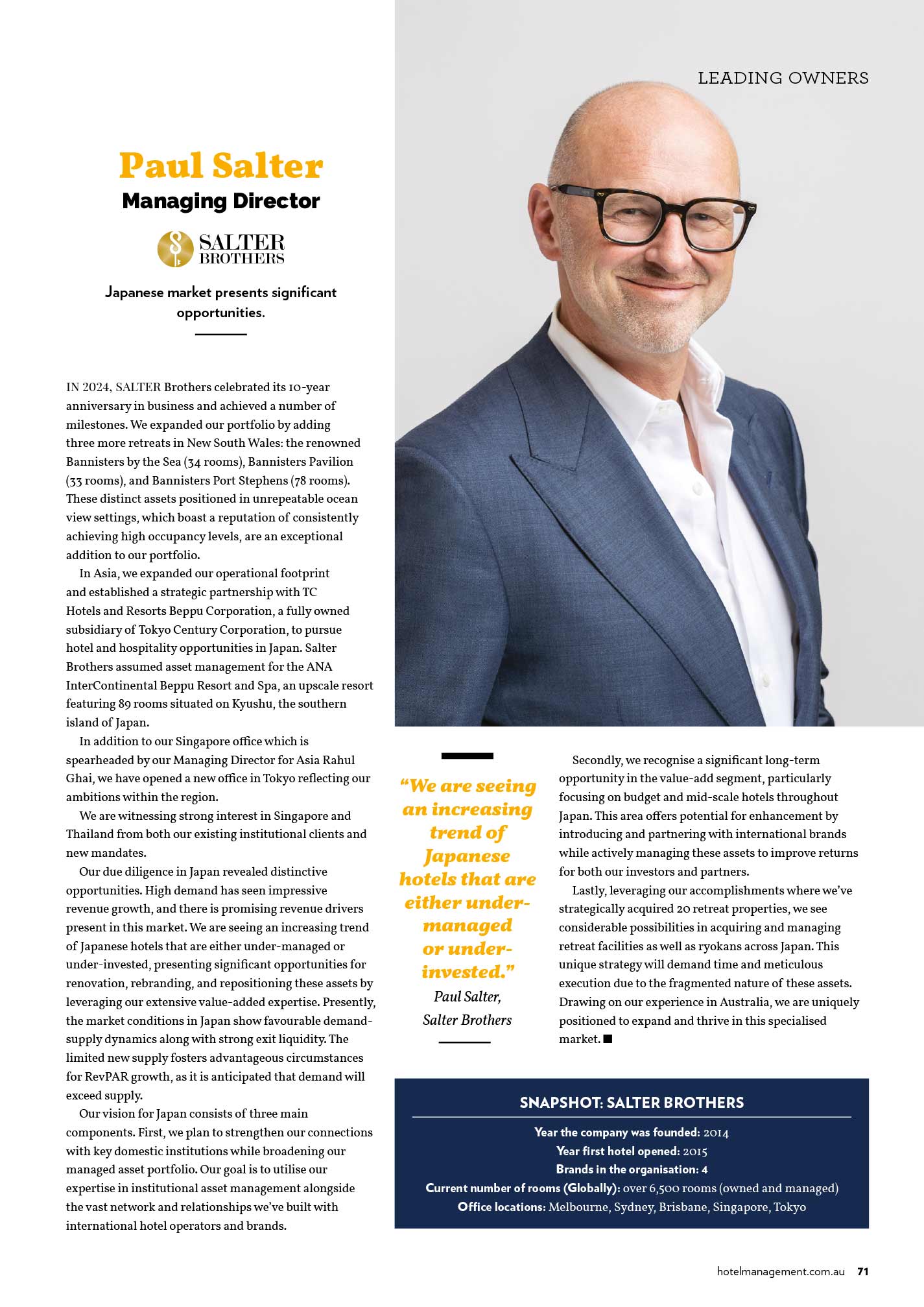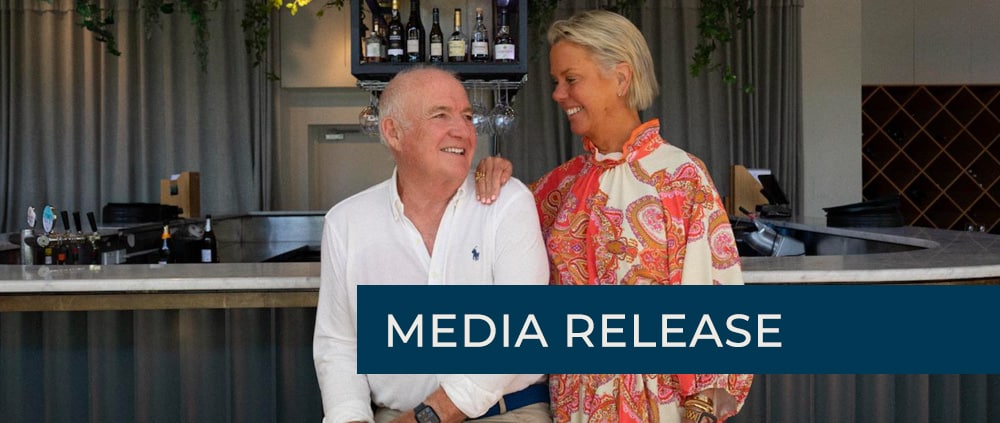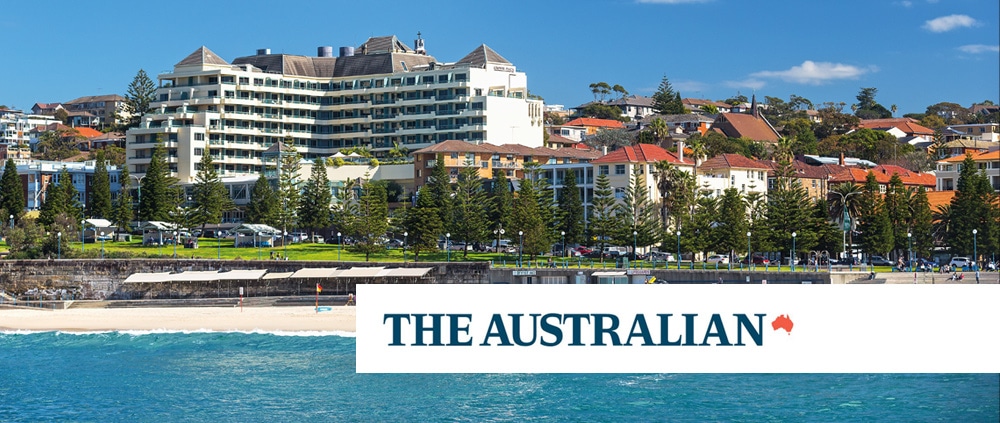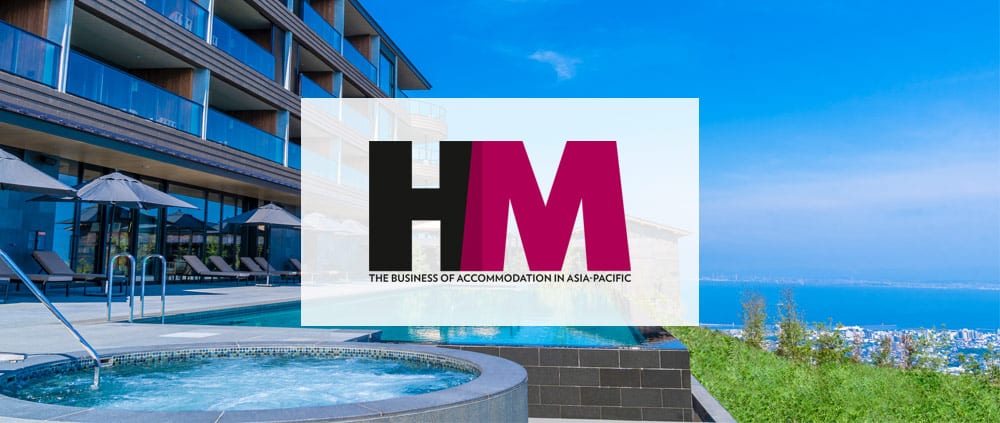NEWS & INSIGHTS
Salter Brothers joins forces with Kilara Capital to establish Australia’s leading sustainable investment fund
Press Release | October 30, 2025
Salter Brothers is pleased to announce that it has partnered with Kilara Capital (Kilara) to establish KSB Sustainable Investments (KSB), a new Australian investment platform dedicated to decarbonisation outcomes. This strategic partnership combines Salter Brothers’ global expertise in alternative assets, with Kilara’s leading climate investment capabilities and strong track record delivering commercial returns alongside meaningful decarbonisation outcomes. KSB will be focusing on three core business lines, private equity, energy infrastructure and nature solutions.
Kilara Capital, founded in 2018, is a platform with the objective of generating financial returns while simultaneously achieving decarbonisation outcomes for its investors, investee companies and projects. In doing so, Kilara has established itself as a leader in private equity investments that support medium-sized enterprises (SMEs) in their decarbonisation efforts.
Bringing together Kilara’s decarbonisation strategies with the private equity investment acumen and funds management expertise of Salter Brothers, the platform provides compelling ESG investment opportunity for investors.
KSB is currently in market with the KSB Transition Fund (KTF) — a private equity fund designed to capitalise on one of the most urgent and investable opportunities of our time, the decarbonisation of the real economy.
KTF targets companies that are deeply embedded in essential value chains and equips them with the tools, capital and expertise needed to transform.
KTF is now open for initial investments, with a first close expected to occur in the fourth quarter of 2025.
In addition, KSB will be launching strategies in energy infrastructure, focussed on battery energy storage systems (BESS), where seed opportunities have been secured, and nature solutions focussed on carbon sequestration and related solutions.
Paul Salter, Managing Director of Salter Brothers, commented “This is a pivotal evolution of our business, aligning with the growing global demand towards sustainability and positioning us at the forefront of climate-aligned investing. Partnering with Kilara and established sustainable investors will allow us to unlock significant opportunities for our investors.”
Kilara’s Managing Partner, Ben Krasnostein stated, “We are at an inflection point in the market and the transition to a low-carbon economy is no longer optional. Partnering with Salter Brothers will enable us to offer investors real benefits if they are seeking sustainable investment options. Salter Brothers is well-experienced and we have the expertise, track record and the right team to deliver commercial returns and decarbonisation outcomes for our investors”
Yossi Kraemer, Salter Brothers’ Co-head Capital Partnerships and Director Funds Management, added “We look forward to accessing Kilara’s expertise and dedicated climate investment platform. Many of our investors are seeking tangible and measurable decarbonisation investment outcomes, and we are excited to be able to do this.”
Salter Brothers acquires Causeway Asset Management, expanding its private credit business
Press Release | August 20, 2025
Salter Brothers is pleased to announce its acquisition of Causeway Asset Management Limited (Causeway), a leading Australian private credit fund manager with over A$600 million funds under management and advice. With over two decades of experience, Causeway provides direct lending solutions to small-to-medium enterprises and middle size corporates in Australia.
Founded in 2003 and headquartered in Sydney, Causeway has deep experience managing corporate loan portfolios exceeding A$1.7 billion since inception. Causeway is led by a highly experienced senior management team with expertise in credit, loan structuring, and analysis, as well as extensive background in recovery, restructuring and workouts.
As a leading diversified alternatives investment manager, with over A$4 billion in assets under management, Salter Brothers specialises in property, credit and equities. After successfully completing a number of significant transactions in the past year, this acquisition in corporate credit adds to our deep domain expertise in real estate credit.
Paul Salter, Managing Director at Salter Brothers added, “We are delighted to welcome Mike, Tim and the Causeway team to Salter Brothers. We are impressed with their expertise, experience and reputation in the industry and believe they will complement our credit capabilities and will be instrumental in driving our private credit growth ambitions.”
Mike Davis, Founding Director of Causeway remarked, “The increase in investor engagement within the private debt asset class over the past 5-8 years reminded us of the private equity sector’s journey since the early 2000’s. In order to scale our participation in the Australian lower mid-market corporate sector which now totals in excess of A$500 billion borrowing appetite, we felt it was timely to build on our foundation in private debt markets by teaming up with Salter Brothers who are also keen to grow their private credit business”.
David O’Connor, Managing Director, Debt Capital Markets at Salter Brothers stated, “The integration of Causeway’s extensive track-record and Salter Brothers’ global platform is garnering significant interest. We have already presented our combined capability to a number of our investment partners, who have expressed a desire to participate in this opportunity”.
Tim Martin, Founding Director of Causeway, said, “We have previously partnered with Salter Brothers on transactions, and these experiences have demonstrated to us that we share similar values and culture. Importantly, we have a shared perspective on conservative underwriting practices and a laser focus on capital preservation across our portfolios, which means we are well-placed to provide a compelling, integrated offering to our wholesale and institutional investors in our targeted market sector.”
Rick and Sarah Stein announce Australian flagship restaurant to open in Sydney’s Coogee Beach
Press Release | May 26, 2025
Celebrated British Chef Rick Stein has announced today that he and his Australian publicist wife Sarah Stein have chosen Sydney’s Coogee Beach as the location for their Australian flagship restaurant – Rick Stein at Coogee Beach. Best known for his ethos of ‘fresh seafood, simply prepared’ Stein will bring his signature seaside dining style while Sarah will add her interiors and public relations flair through to the new venture at Coogee Beach in Sydney’s Eastern suburbs.

Occupying a stunning beachfront location, the new 224 seat restaurant at the recently announced InterContinental Coogee Beach will include a signature restaurant, bar dining and courtyard terrace. Inspired by Rick’s lifelong love of the ocean and the fresh unfussy elegance of his kitchens, Rick Stein at Coogee Beach will offer refined beachside dining that showcases the best Australian regional and local produce across an array of experiences from casual to upmarket.
Rick and Sarah are excited to be bringing their flagship restaurant to life in Sydney, “Coogee Beach is yet another stunning coastal location for our Australian restaurant portfolio – perched by the sea and full of the laid-back charm we’ve come to love so much here. It’s especially meaningful for me as my wife Sas grew up in Sydney, so opening a restaurant in her hometown makes this venture all the more special for us both.”
“There’s an abundance of top-quality seafood in Australia and we’ll be championing local, seasonal produce with the benefit of accessing the biggest fish market in the southern hemisphere. We’ll continue to utilise the relationships we’ve built in our regional locations to source that same produce in Sydney. It’s the best of both worlds,” said Stein.
The menu will feature an abundance of seafood including Mahi Mahi caught off the coast of Nelson Bay, Stockton Pipis from Port Stephens, line-caught Mackerel from Ulladulla and Nelson Bay Blue Swimmer Crab for Stein’s signature Singapore Chilli Crab. The venue will also offer Rick’s famous fish and chips, prepared in the traditional British style complete with mushy peas and hand-cut chips.
Rick Stein at Coogee Beach will become Rick and Sarah Stein’s third Australian restaurant adding to his well-loved locations in Mollymook and Port Stephens, both popular with Sydneysiders, regional travellers and international visitors.
Rick and Sarah’s new venture is in collaboration with Australian partners Salter Brothers, who acquired Bannisters Group in 2024.
Paul Salter, Managing Director of Salter Brothers commented, “We are very excited to be bringing Stein to Coogee Beach and build on our existing partnership. I can’t think of a better location in Sydney to showcase his distinctive, yet approachable, fresh seafood experience”.
Rick Stein at Coogee Beach is scheduled to open in November 2025 and will be located at the recently announced InterContinental Coogee Beach.
Salter Brothers advance ASX listing after $1bn splurge on InterContinental and Regent hotels
By Lisa Allen | 21 May 2025
As featured in The Australian Business Review
Melbourne-based fund manager Salter Brothers has undertaken a wholesale upgrade of its hotel brands, taking them from Crowne Plaza to the more upmarket InterContinental and Regent brands in a $1bn plus deal as it advances plans to list a hospitality vehicle.
Salter Brothers managing director Paul Salter says he was advancing plans to list a hospitality vehicle within 18 months, with hopes to build its portfolio into one of the largest such vehicles in the Asia-Pacific, worth around $2.5bn.
“We are still continuing to pursue an IPO, it’s a hospitality REIT. It’s 18 months away, it’s still a part of the larger strategy,” he said.
“We have a lot of interest from investors to try and participate in that vehicle …which has an end value of $2.5bn,” said Mr Salter.
Salter Brothers will tip six properties worth more than $1bn which will be managed by international hotelier IHG Hotels & Resorts into the portfolio as well as various other existing assets.
“Everything in today’s announcement…so that is the Regent Hotels, the (new)development in Canberra. The development assets will (also) go in once they are built,” Mr Salter said.
IHG and Salter Brothers announced on Wednesday that hotels in Melbourne,Canberra, the Gold Coast and Sydney will be included in the major portfolio changes which will see the Regent Hotels & Resorts brand returned to Australia after a 28-year absence, Crowne Plaza Melbourne and Coogee upgraded to InterContinental hotel brands as well as the development of a new Hotel Indigo Canberra and the redevelopment and expansion of the trendy voco hotel on the Gold Coast.
Under the new plans, the InterContinental Melbourne the Rialto will be rebranded the Regent Melbourne, with the precinct created into a landmark destination inMelbourne’s CBD including conference and event spaces, restaurants, bars and a spa.
Mr Salter said the fund manager had a strong history with IHG spanning more than a decade, and is fully committed to the partnership, which he said continues to drive growth for our assets.
“This new agreement represents over $1bn investment in the luxury and lifestyle segment and highlights our conviction in providing distinctive lifestyle experiences for travellers globally, with an emphasis on timeless style, culinary mastery and wellness facilities for guests.”
“We look forward to working with IHG throughout the journey of these exceptional hotels, and welcoming domestic and international guests to experience these incredible properties under their new brands in the coming years.”
Mr Salter said he was not worried about dwindling consumer spending. “… people travelling are looking for experiences and are prepared to spend more.”
He said international travellers, such as Indian holidaymakers, Europeans, South EastAsians and Americans, were returning to Australia. “China internationals are probably roughly at 50 per cent of what they were before covid. It’s a change in the mix.”
“We will see more international travel arrivals over the next 5–10 years. We are positioning the portfolio for it, we are positioning it for that macro shift,” said MrSalter, adding that he was looking to buy more hotels, particularly domestically and offshore in Japan and Korea specifically.
Although recent STR research shows that Melbourne’s hotel rate growth was negative3.3 per cent in the 2024 financial year, compared with Sydney’s hotels, which recorded nearly 4 per cent increases, while Perth recorded a 3.2 per cent growth over the same time frame, a major part of today’s announcement was the redevelopment of the Melbourne InterContinental.
Mr Salter is unphased, saying Melbourne is the sporting capital of Australia and much of the new hotel supply has already arrived.
“That new supply has been delivered over the next 12 months. The Melbourne market has been resilient, it’s the sporting capital of Australia and a great events market.”
He added that the new Melbourne Regent won’t be delivered until 2030, adding that by that time the Melbourne Regent hotel will be well positioned in the market.
Under the plan for the Melbourne Regent, the non heritage component of the existing InterContinental hotel will be demolished and a new tower constructed.
“For that asset we looked at an appropriate brand, with the capital we wanted what we considered a six-star brand, and The Regent has some beautiful properties globally it would be appropriate for that site,” Mr Salter said.
IHG Hotels and Resorts managing director, Australasia Pacific Matt Tripolone, added that all these Salter properties are in Premium A Grade locations. “In our view, these markets are significantly mature and now lend themselves to more premium brands.”
Mr Tripolone stressed that the partnership enables Salter Brothers to reposition key assets and unlock long-term value.
He said the Crowne Plaza Sydney Coogee Beach would reopen as an InterContinentalSydney Coogee Beach, in late 2025. Crowne Plaza Canberra will be redeveloped tocreate a new precinct for InterContinental Canberra and Hotel Indigo Canberra.
The Hotel Indigo Canberra will add a boutique lifestyle brand to the Canberramarket, while the Crowne Plaza Melbourne will be rebranded into anInterContinental Melbourne.
The voco Gold Coast will be refurbished and expanded.
All up, IHG Hotels & Resorts manages 77 hotels in Australasia with nine brands including Six Senses, InterContinental, Hotel Indigo, voco, Crowne Plaza.
Salter Brothers partners with Tokyo Century as investment manager for the Hotel Indigo Changi Airport development
Press Release | March 27, 2025
Salter Brothers is pleased to announce its partnership with Tokyo Century as their investment manager for the joint venture development of the Hotel Indigo Changi Airport with OUE Limited. This follows Tokyo Century’s recent announcement regarding its investment in the development.
This strategic partnership underpins Salter Brothers’ commitment to premium hospitality investments in key gateway cities. Tokyo Century’s investment will contribute to the development of Hotel Indigo Changi Airport, an upscale lifestyle hotel designed to meet the changing demands of travellers seeking boutique luxury and authentic local experiences. Conveniently located at Singapore’s Changi Airport, the property is set to redefine hospitality standards in the region.
“We are delighted to partner with Tokyo Century in executing their first real estate investment in Singapore,” said Paul Salter, Managing Director of Salter Brothers. “This partnership aligns with our strategic plans to invest in high quality hospitality assets that are distinctly positioned and offer strong growth potential. Singapore continues to be a key market for us.”
Rahul Ghai, Managing Director and Head of Asia at Salter Brothers added “We are confident that Hotel Indigo Changi Airport will provide exceptional value to both travellers and investors alike.”
Tokyo Century is pleased to partner with Salter Brothers in this strategic joint venture with OUE Limited,” said Yoichiro Nakai, Deputy President and Executive Officer at Tokyo Century. “This development reflects our continued commitment to expanding our hospitality footprint in dynamic and high-growth markets. We look forward to working closely with our esteemed partners to create a landmark property that embodies excellence and innovation.”
Scheduled for completion in 2028, Hotel Indigo Changi Airport will feature cutting-edge design, immersive guest experiences, and sustainable hospitality practices, reinforcing Singapore’s position as a premier global travel hub.
Paul Salter featured in HM Magazine’s 2025 Industry Leaders Forum

 Investor Portal
Investor Portal




